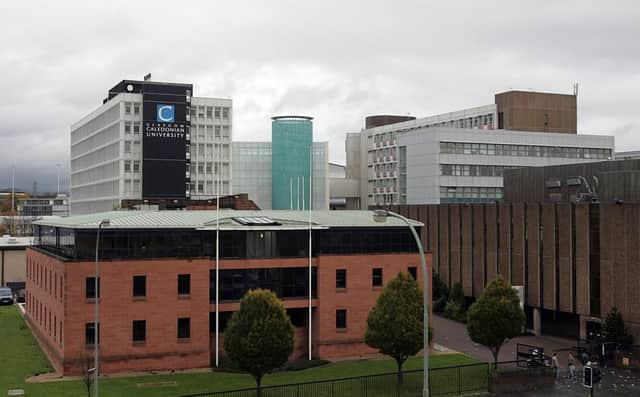International education links help institutions improve lives across the world


The Scottish Government continues to highlight the benefits to Scotland from the extensive international presence, networks and reputation of our universities, from the collaborative Connected Scotland initiative and from the many international students who choose to study in Scotland.
As a globally-networked university, Glasgow Caledonian (GCU) is harnessing its campuses in Glasgow, London and New York and educational offerings in Oman, Bangladesh and Africa to extend our global reach, engaging in new ways with learners, partners and communities at home and overseas.
Advertisement
Hide AdAdvertisement
Hide AdThrough our remote campuses, distance learning facilities and joint degrees, our transnational education continues to grow to address international demand. In Oman, we recently celebrated our partner institution Caledonian College of Engineering’s 21st graduation ceremony with more than 340 GCU graduates present. Overall, more than 3000 undergraduate degrees and 50 postgraduate degrees have been awarded by the college.
The college collaborates with GCU in the UK and with VIT University in India to offer four-year degree and honours degree engineering programmes. The partnership with Caledonian College of Engineering has been in place for two decades and together we produce around 60 per cent of traditional engineering graduates in Oman. Our international strategy has seen the university develop a global engineering curriculum which underpins our student studies, regardless of location.
In Bangladesh, GCU and the Grameen Healthcare Trust co-founded the Grameen Caledonian College of Nursing (GCCN) in 2010.
The seeds of GCCN were sown in 2009 when Professor Muhammad Yunus (now GCU’s chancellor) and GCU principal and vice-chancellor Professor Pamela Gillies CBE FRSE began discussing how to work together to develop healthcare provision in Bangladesh to an international standard.
A Nobel Laureate and founder of the Grameen Bank, Prof Yunus has helped transform the lives of millions of people through microlending to society’s poorest communities. He was impressed by GCU’s hands-on track record of establishing healthcare programmes in developing countries across the world.
By early 2010, the College was welcoming its first 38 students. Today the college is contributing to the transformation of healthcare across Bangladesh.
The College enables young women to access international standard nursing education and clinical practice, in the process raising the status of the nursing profession in Bangladesh and providing opportunities, education and leadership training to women from impoverished backgrounds.
In recognition of this work, GCU received the Unilever International Award, part of the Responsible Business Awards run by the Prince of Wales’s charity Business in the Community. GCU achieved re-accreditation of the Unilever International Award this year for successfully demonstrating “continual and positive impact” for its healthcare and education work in Dhaka.
Advertisement
Hide AdAdvertisement
Hide AdThe goals of the College are underpinned by GCU’s position as the University for the Common Good, and its unstinting commitment to providing opportunities to students, as well as using its expertise for the practical benefit of communities around the world.
A more recent partnership is our collaboration with South Africa’s Transnet Freight Rail to deliver co-created bespoke degrees, diplomas and certificates in railway operations management to Transnet employees as the company intensifies training to boost its service.
Launched in 2012, the programme is delivered in partnership between GCU’s School for Work-Based Education, the University of Johannesburg, the UK’s Institution of Railway Operators and Transnet’s School of Rail.
This year, 180 Transnet staff completed programmes specially designed for the company. Having seen more than 260 employees graduate over the past two years, Transnet’s acting chief executive, Siyabonga Gama, described the partnership with GCU as “a major milestone” towards fully skilled employees managing world-class rail, ports and pipeline operations.
In recognition of its social enterprise commitment, GCU is the first university in Scotland to have been designated an Ashoka U Changemaker Campus – part of a global network of universities and colleges – reflecting GCU’s “vision for higher education to become the next global driver of social change”.
We aim to build on the success of GCU’s global hub model to establish a stronger international presence, extending our international reach and impact in transnational education.
l Professor James Miller is deputy vice-chancellor of Glasgow Caledonian University